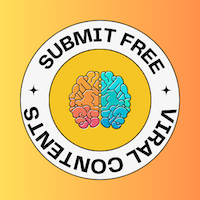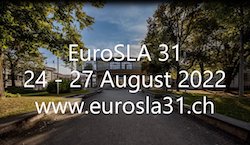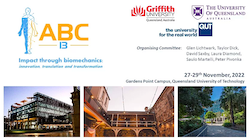ITS2022 Intelligent Tutoring Systems Conferences on Computer and Cognitive Sciences, Artificial Intelligence and Deep Learning in Tutoring and Education ROMANIA, BUCHAREST
ITS2022 is the upcoming Conference of the series of Intelligent Tutoring Systems Conferences on Computer and Cognitive Sciences, Artificial Intelligence and Deep Learning in Tutoring and Education. It will be held in Bucharest, Romania, in June/July 2022 and will be hosted by Bucha- rest Polytechnic. The theme of the conference is “NEW CHALLENGES FOR ITS DURING AND AFTER COVID”.
ITS2022 announces an open CFP and invites authors to submit their contributions in the form of scientific papers, posters, doctoral consortium papers, workshop/tutorial proposals by JANUARY 15, 2022. Acceptance notification will be sent to authors by FEBRUARY 28, 2022. Paper submission should be made through the Easy Chair platform.
Topics of Interest include, but are not limited to:
Intelligent Tutoring
Learning Environments for Underrepresented Communities Artificial Intelligence in Education
Human in the Loop, Understanding Human Learning on the Web in a Virtual (Digital) World Machine Behaviour (MB), Explainable AI, Bias in AI in Learning Environments
Emotions, Modeling of Motivation, Metacognition and Affect Aspects of Learning, Affective Computing and ITS
Extended Reality (XR), Virtual Reality (VR), Augmented Reality (AR), Mixed Reality (MR) in Learning Technologies
Informal Learning Environments, Learning as a Side Effect of Interactions
Collaborative and Group Learning, Communities of Practice and Social Networks
Analytics and Deep Learning in Learning Systems, Educational Datamining, Educational Ex- ploitation of Data Mining and Machine Learning Techniques
Sentiment Analysis in Learning Environments
Data Visualization in Learning Environments
Privacy, Security and Ethics in Learning Environments
Gamification, Educational games, Simulation-based Learning and serious games
Brain-Computer Interface applications in Intelligent Tutoring Systems
Dialogue and Discourse During Learning Interactions
Ubiquitous, Mobile and Cloud Learning Environments
Virtual Pedagogical Agents and Learning Companions
Multi-Agent and Service-Oriented Architectures for Learning and Tutoring Environments
Single and GroupWise Action Modelling in Learning Environments
Ontological Modeling, Semantic Web Technologies and Standards for Learning
Empirical Studies of Learning with Technologies
Instructional Design Principles or Design Patterns for Educational Environments
Authoring Tools and Development Methodologies for Advanced Learning Technologies
Domain-Specific Learning Technologies, e.g. Language, Mathematics, Reading, Science, Med- icine, Military and Industry
Non-Conventional Interactions between Artificial Intelligence and Human Learning Personalized and Adaptive Learning Environments
Adaptive Support for Learning, Models of Learners, Diagnosis and Feedback Recommender Systems for Learning
Causal Modelling and Constraints-based Modelling in Intelligent Tutoring
![]()
💸 Website & Tickets
 Go to Event Website
Go to Event Website
◑ Topics | Categories
- Academic Research
- Applied Science
- Artificial Intelligence
- Bioengineering
- Biosciences
- Computational Intelligence
- Computer Science
- Creativity
- Data Science
- E-EDUCATION
- E-LEARNING
- Education
- Education & Elearning
- Innovation
- Nanoscience
- Networking
- Researchers
- Science and Technology
- Scientific
- Scientists
- Soft Computing
Advertisements








